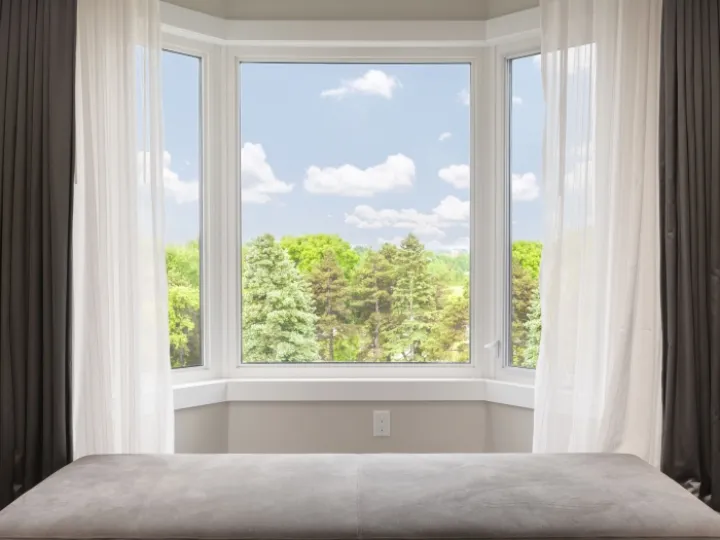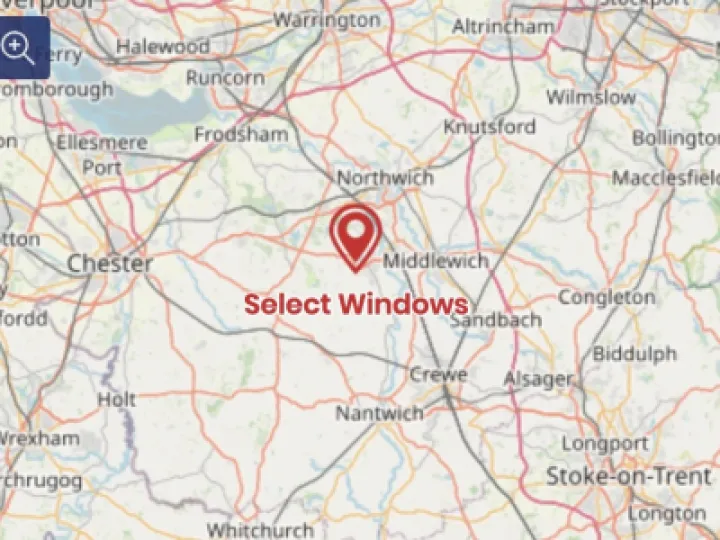Tips for choosing new windows
They say windows determine a home's character and can undoubtedly make a significant difference to the look and feel of any property.
Windows should be a key consideration whether you plan to upgrade your existing windows, renovate a property, or even consider a new build.
Some crucial decisions must be made before you even browse the window catalogues. Windows are subject to a lot of wear and tear from wet weather, freezing temperatures and strong winds.
They do, of course, last for years, but when they start to deteriorate, they can quickly become a costly burden, letting in water and letting out heat.
Technology in window manufacture has rocketed in recent years with considerable improvements in robustness and energy saving.
We cover some of the features you must consider when shopping around for new window installations.
Check for planning approval
New-build homes will need planning consent, which may require installing a particular type of window frame, especially if you are in a conservation area. Renovations to existing properties may also need the planning go-ahead if the alteration materially affects the property, such as installing dormer windows on the roof. Replacing existing windows or installing double-glazed windows will not usually require planning permission, but it is worth checking with your local council first.
Window manufacturing standards
New house building standards aim to improve energy efficiency, and window design and manufacture also play their part. Replacement windows are subject to strict standards on thermal efficiency, and regulations may also apply to ventilation and safety.
If the original window acted as a fire escape route, the window replacement would likely have to perform the same function. This may require specifications such as large windows longer than 800mm made of toughened safety glass, and so on.
You may need to produce the necessary certificates of Building Control approval if you decide to sell your home. The most efficient way to ensure compliance with window regulations is to use a FENSA registered window installer . This body was set up to approve installers.
Window frame materials
Replacement windows are now available in many materials, but they are mainly made of plastic (PVCu), metal (aluminium), and timber (wood). Each has its advantages and drawbacks. Wood is the traditional window material as it is relatively cheap, has a good insulator, and has aesthetic appeal.
However, it is expensive to maintain as it requires regular repainting and can rot if neglected. The main advantage of PVCu is that it is very durable, needs no maintenance other than the occasional cleaning with soapy water, and offers reasonable insulation.
The drawbacks are that they tend to be more expensive, and people don't find them as attractive. However, technological development in recent years has resulted in coloured and woodgrain finishes that make them much more appealing.
Metal frames are mostly aluminium or steel. Robust and long-lasting, they need very little maintenance. Still, they are relatively poor insulators, so many are manufactured with 'thermal breaks', but this tends to make them the most expensive option.
Different types of glass
Modern windows come with many kinds of window glass options. These days, most are double-glazed, as this improves sound and heat insulation enormously. Tinted glass is available in various colours, including green, blue, bronze and grey.
They can look attractive but offer no particular advantages, and they can reduce the amount of light they transmit. Safety glass is either toughened or laminated. Either treatment makes them more challenging to break. Laminated glass will crack instead of shatter, while toughened glass breaks into tiny beads.
Low-E glass has a virtually undetectable coating of metal oxide, which lets in heat and light from outside but seals it inside and cuts down heat loss. Other types of glass include self-cleaning glass and triple glazing, where window panes are filled with a mix of gases to provide extra insulation.
Check for window energy ratings
Windows these days come with a standardised energy rating or WER score. The WER score measures the total energy flow through the window and, like electrical goods, gives it a rating from A to G, with A the best and G the worst. It replaces the old U-value and G-value ratings and applies to the whole window, both glass and frame. Replacement windows need a minimum WER rating of C, while windows for new properties usually require a B-C score.
Window installation
Installing windows is not a job for the amateur; many pitfalls exist. Besides planning considerations, the novice can face everything from measurement difficulties to delivery delays. There is also the choice of window styles such as casement , sash or tilt and turn . This is covered in another article.
If you hire a window installer to fit your windows, make sure they are FENSA registered like Select Windows Systems to ensure you have safe, secure and well-fitted windows.
More on window glazing
How double glazed windows work
Types of glass window
Pitfalls of window replacement
Choose a FENSA intaller
CALL 01606 863553
For a FREE quote on new windows.
Select Window Systems
Phone: 01606 863553
Email: hello@swsonline.co.uk
Visit: Unit 2, Woodford Court, Winsford, Cheshire, CW7 2RB
Cheshire doors and windows.
Window and door installations across Cheshire.
Visit Our Cheshire Showroom
Disclaimer
Select Window Systems accepts no responsibility or liability for any damages or costs of any type arising out of or in any way connected with your use of this website. Select Window Systems cannot be held liable for any actions taken in reliance on any published content, which is for information purposes only.


